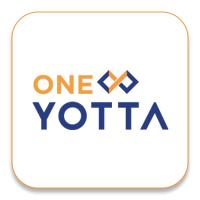Colocation
Colocation
How Colocation Is Transforming Healthcare IT

Modern medical practice relies heavily on data, with electronic health records (EHRs), medical imaging, genomics, and telemedicine generating vast data streams daily. Meeting the complex challenge of managing, storing, and safeguarding this invaluable healthcare data is where colocation data centers step in. These facilities provide a secure, cost-effective, and scalable infrastructure, and this article explores their pivotal role in the healthcare sector.
Adaptability Infrastructure
Colocation data centers enable healthcare organisations with the adaptability to scale IT infrastructure according to the dynamic demands of the industry. The healthcare sector experiences fluctuations in data volume, especially during peak patient hours or the adoption of new diagnostic technologies. Traditional in-house data centers often struggle to keep pace with these shifts, but colocation facilities can effortlessly accommodate increased storage and processing requirements.
Resilience and Assurance
The healthcare sector has a near-zero tolerance for data loss or downtime, as patient care, medical records, and life-saving procedures depend on the continuous availability of data. Colocation data centers provide redundancy and reliability through backup power systems, redundant network connections, and disaster recovery capabilities. This guarantees that critical healthcare data remains accessible, even in the face of events like power outages, hardware failures, or natural disasters.
Security and Regulatory Compliance
Securing sensitive patient information is of paramount importance in the healthcare sector. Colocation data centers offer enhanced security measures and compliance options specifically tailored to the unique needs of healthcare organisations. These facilities implement rigorous physical security protocols, including biometric access control, surveillance, and intrusion detection systems.
Economical Edge
Operating an on-premises data center is expensive, labour intensive, and time-consuming. Colocation data centers offer a shared infrastructure model that uses resources and facilities more efficiently. Additionally, colocation facilities provide a predictable cost structure. This makes budgeting and financial planning more manageable for healthcare organisations.
Enhanced Connectivity
In healthcare, the rapid and secure exchange of data among various entities is vital. Colocation data centers foster interconnectivity by offering direct access to a broad array of network service providers. This enables healthcare organisations to establish secure connections with hospitals, research institutions, and other partners, thereby improving the flow of patient information and facilitating collaborative research and patient care.
Disaster Recovery and Business Continuity
The healthcare industry cannot tolerate service interruptions, especially during emergencies. Colocation data centers play a pivotal role in disaster recovery and business continuity planning. They provide off-site backup and recovery solutions, allowing healthcare organsations to swiftly restore operations in case of system failures or disasters.
Performance Optimisation
Colocation data centers use advanced technology to optimise the performance of healthcare IT systems. They have high-speed, low-latency network connections and state-of-the-art hardware in place, which are essential for the efficient operation of applications like telemedicine, remote monitoring, and real-time diagnostics. Healthcare providers, in utilising these capabilities, can forge a pathway towards delivering swifter and more dependable services to their patients.
Remote Monitoring and Management
The rise of telehealth and remote patient monitoring, accelerated by the COVID-19 pandemic, has led to a growing need for remote management tools. Data centers in India provide healthcare organisations with the tools needed to support these services effectively. Remote monitoring and management capabilities enable healthcare IT teams to ensure the security and performance of critical systems from anywhere, facilitating the expansion of remote healthcare services. Colocation data centers have become an indispensable asset in the healthcare sector.
Their scalability, reliability, security, and cost-efficiency make them ideal partners for healthcare organisations aiming to meet the ever-growing demands for data storage, processing, and management. Yotta NM1 data center in Mumbai is a paragon of excellence, offering industry-best uptime, multi-layer security, and direct cloud connectivity. It is the trusted choice for prominent enterprises across sectors, offering a secure, dependable, and scalable infrastructure to support critical IT operations. The strategically located Yotta D1 data center in Delhi ensures uninterrupted operations, promising the highest levels of connectivity and fault tolerance. Yotta’s commitment to superior performance and adherence to global standards makes it a go-to choice for businesses seeking state-of-the-art IT solutions.




















